"Approximately 1.3 million Indian soldiers served in World War One, and over 74,000 of them lost their lives. But history has mostly forgotten these sacrifices, which were rewarded with broken promises of Indian independence from the British government."
- Shashi Tharoor
(Writer, public intellectual, former United Nations official, Historian)
Many people do think of Great War (later known as World War -1) as European war and some of them think US and Canada were involved too. But in fact, it was a true world war in which soldiers from every continent except Antarctica participated. But one place sent more than 1.5 millions soldiers in the war. It was India.
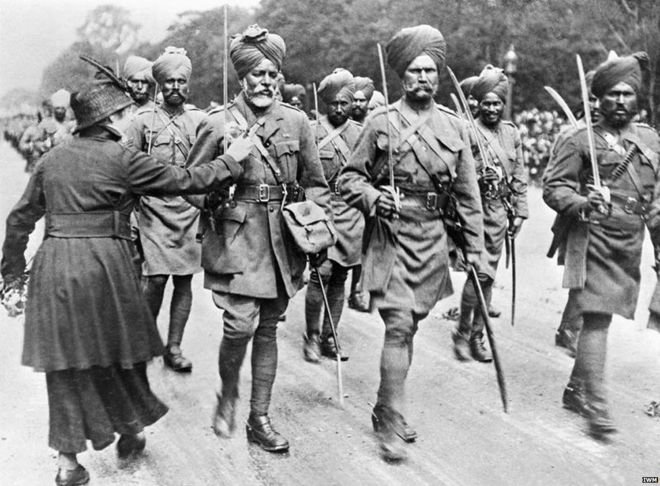
A woman pins flower on the tunic of a soldier at a march-past of Indian troops. Image
Exactly 100 years after the "guns of August" boomed across the European continent, the world has been extensively commemorating that seminal event. The Great War, as it was called then, was described at the time as "the war to end all wars". Ironically, the eruption of an even more destructive conflict 20 years after the end of this one meant that it is now known as the First World War. But while the war took the flower of Europe's youth to its premature grave, snuffing out the lives of a generation of talents,it also involved soldiers from faraway lands that had little to do with Europe's bitter traditional hatreds.
The role and sacrifices of Australians, New Zealanders, Canadians and South Africans have been celebrated for some time in books and novels, and even rendered immortal on celluloid in award-winning films like Gallipoli. Of the 1.5 million Indian troops who served in the conflict, however, you hear very little.
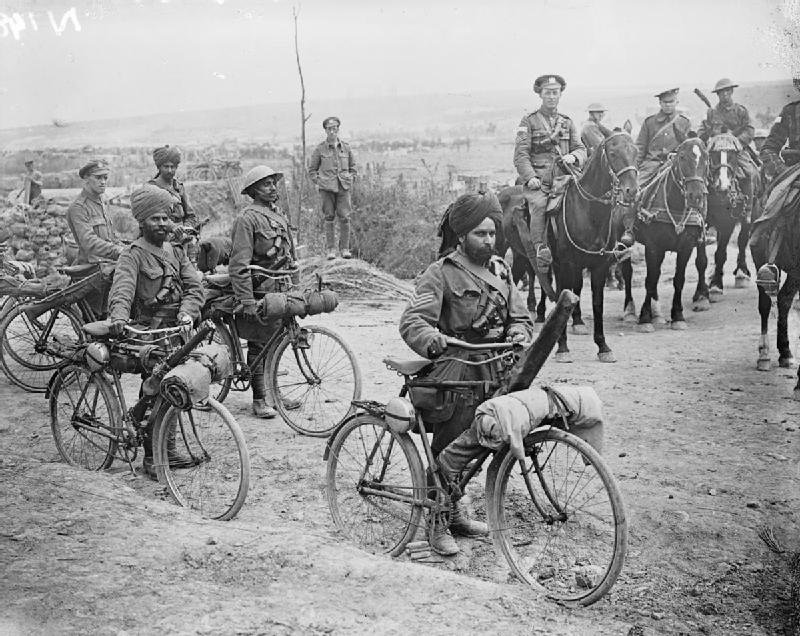
Indian bicycle troops at a crossroads on the Fricourt-Mametz Road, Somme, France. Image
Over one million Indian troops served overseas, of whom 62,000 died and another 67,000 were wounded. In total at least 74,187 Indian soldiers died during the war. the Indian Army fought against the German Empire in German East Africa and on the Western Front. Indian divisions were also sent to Egypt, Gallipoli and nearly 700,000 served in Mesopotamia against the Ottoman Empire. While some divisions were sent overseas others had to remain in India guarding the North West Frontier and on internal security and training duties.
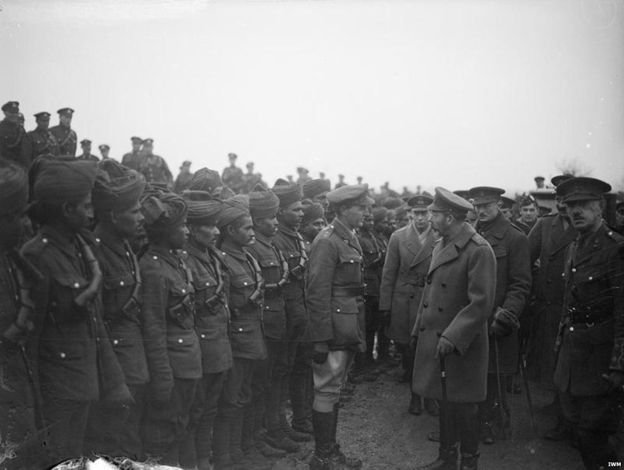
King George V inspecting Indian troops at Le Cateau in 1918. Image
It was Indian jawans (junior soldiers) who stopped the German advance at Ypres in the autumn of 1914, soon after the war broke out, while the British were still recruiting and training their own forces.The most painful experiences were those of soldiers fighting in the trenches of Europe. Letters sent by Indian soldiers in France and Belgium to their family members in their villages back home speak an evocative language of cultural dislocation and tragedy.
Indian soldiers sacrifice went in vain.
Mahatma Gandhi, who returned to his homeland for good from South Africa in January 1915, supported the war. Not only Gandhi but other freedom fighters mostly Indian congress member like Muhammad Ali Jinnah supported because for its endeavours, India expected to be rewarded with a major move towards independence or at the least self-government.
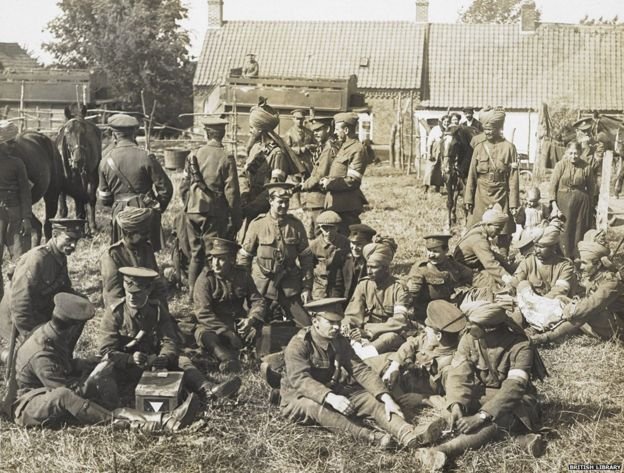
English and Indian soldiers of the Lucknow Cavalry Brigade relaxing in a farmyard at HQ, 1915. Image
The British raised men and money from India, as well as large supplies of food, cash and ammunition, collected both by British taxation of Indians and from the nominally autonomous princely states. In return, the British had insincerely promised to deliver progressive self-rule to India at the end of the war. Perhaps, had they kept that pledge, the sacrifices of India's First World War soldiers might have been seen in their homeland as a contribution to India's freedom.
Such was the cost of the war, that India’s economy was pushed to near bankruptcy. The Indian support given to Britain’s cause surprised the establishment in Britain. ‘The Times’ wrote:
“The Indian empire has overwhelmed the British nation by the completeness and unanimity of its enthusiastic aid.”
When it became obvious that this was not going to happen, the mood in India became more militant. During the last phases of the war Mahatma Gandhi said:
“Seek ye first the recruiting office, and everything will be added unto you.”
When the war ended in triumph for Britain, India was denied its promised reward. Instead of self-government, the British imposed the repressive Rowlatt Act, which vested the Viceroy's government with extraordinary powers to quell "sedition" against the Empire by silencing and censoring the press, detaining political activists without trial, and arresting without a warrant any individuals suspected of treason against the Empire.
Following this period, Gandhi launched his first India-wide campaign of civil disobedience against British authority in February 1919. It was not driven by anti-Western or anti-British sentiment per se, but by the pursuit of self-determination. It took a looming Second World War, and the resistance against risking more Indian lives for little tangible return, before nationalist efforts redoubled under the auspices of the Quit India Movement. But the origins of Indian independence can be traced back to the events of the First World War.
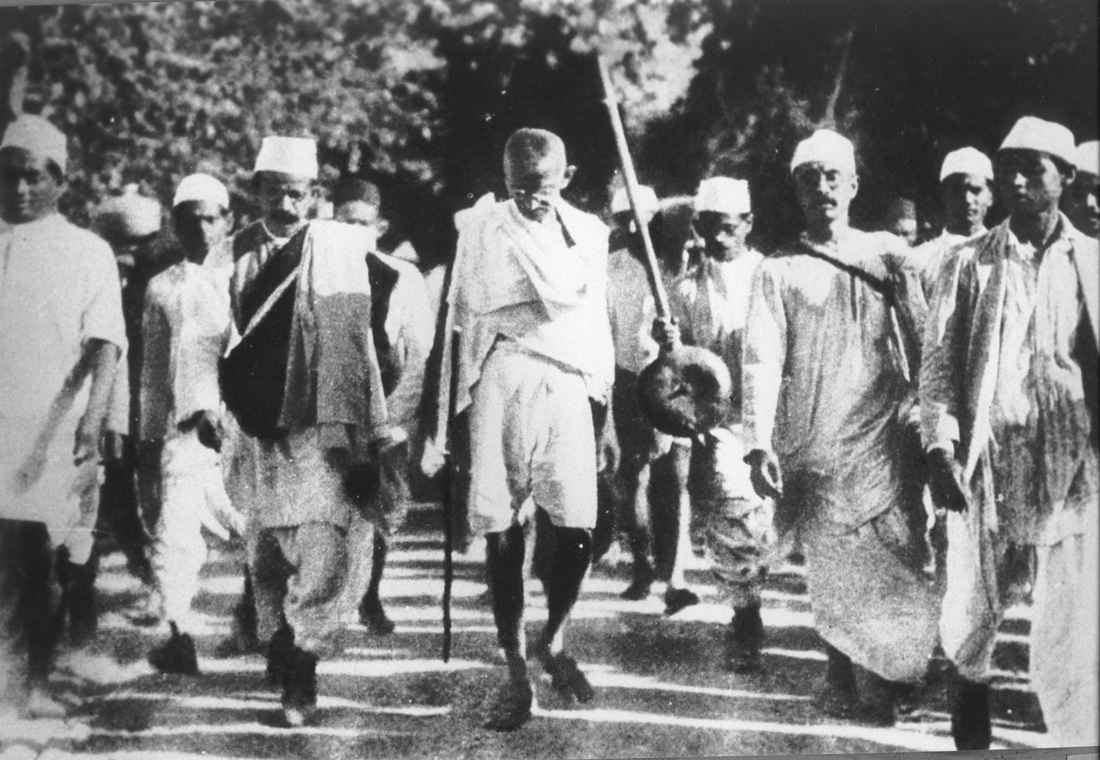
Gandhi towards civil disobedience. Image
Why the Indian soldiers of WW1 were forgotten...?
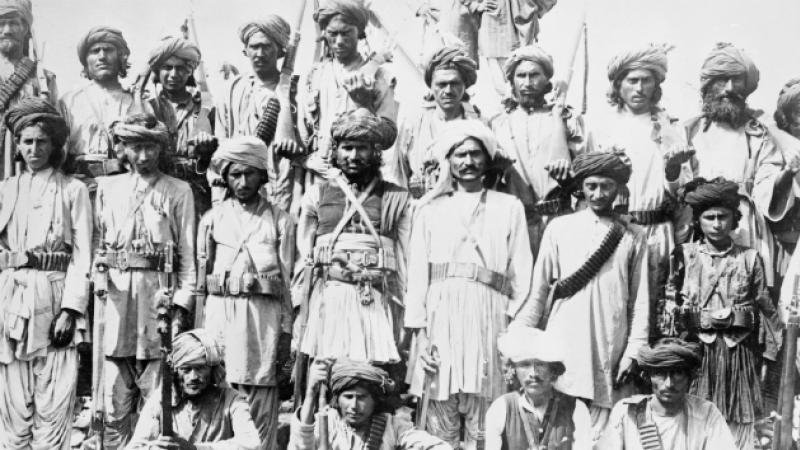
Photo of members of a Waziri Khasadar, India, 1917-19 © Imperial War Museum. Image
With British perfidy providing such a sour ending to the narrative of a war in which India had given its all and been spurned in return, Indian nationalists felt that the country had nothing to thank its soldiers for. They had merely gone abroad to serve their foreign masters. Losing your life or limb in a foreign war fought at the behest of your colonial rulers was an occupational hazard - it did not qualify to be hailed as a form of national service.
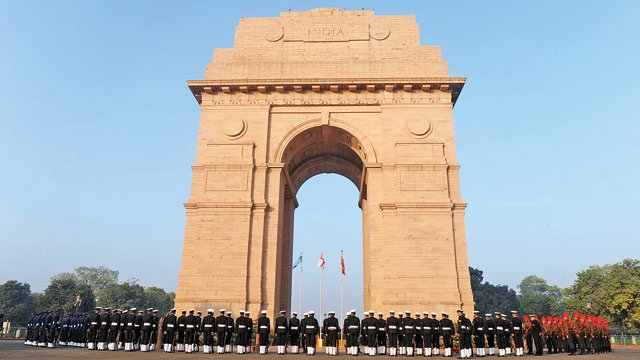
The British commemorated the war by constructing the triumphal arch known as India Gate in New Delhi. India Gate, built in 1931, is a popular monument. Image
References and Source Material:
WIKIPEDIA
British Council
BBC
Youtube : Great War
The history learning site

Be Musical Be Alive...
Love from-
The Patcher (@dpatcher)
Follow ME
@dpatcher

